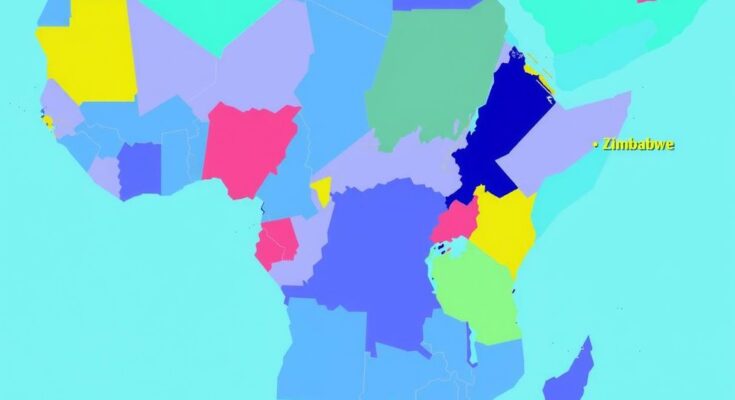Zimbabwe’s Foreign Minister Amon Murwira confirmed the nation’s application to join BRICS, emphasizing its desire to engage within a framework of mutual respect. The country seeks to benefit from BRICS’ principles, while recent agreements with Russia aim to bolster economic cooperation. However, BRICS’ cautious stance on admitting new members and the complexities of African unity pose significant challenges. The introduction of a gold-backed currency indicates Zimbabwe’s readiness for integration into the bloc.
The Minister of Foreign Affairs and International Trade of Zimbabwe, Amon Murwira, has stated his country’s commitment to joining BRICS, underscoring its significance as a platform for economic cooperation based on mutual respect and sovereignty. During his recent visit to Moscow, Murwira confirmed Zimbabwe’s official application to the group, which has recently expanded to include more African nations.
The BRICS affiliation is viewed as beneficial to Zimbabwe, providing a framework that respects human interaction principles. Previously, Egypt and Ethiopia joined the group in 2024, while South Africa has maintained membership since 2011. Zimbabwe emphasizes the non-aligned nature of the BRICS model, showcasing its independence from global power blocs.
In diplomatic discussions in Moscow, agreements were reached concerning key sectors, including mining, energy, and agriculture. Russia reiterated its support for African nations in enhancing defense capabilities and addressing regional security issues. This partnership is crucial for Zimbabwe, helping to counteract Western dominance and strengthening economic cooperation with Russia.
Zimbabwe has undergone significant change since gaining independence in 1980, seeking to shed the colonial lineage established under British rule. This transformation has led to substantial economic challenges, including extreme currency devaluation. The country’s quest to join BRICS signifies a broader shift in African geopolitical dynamics, moving toward distancing from historical colonial ties.
The pressing question remains whether BRICS will embrace new members rapidly, as they have been notably cautious about expansion. Nations such as Syria and Turkey have also expressed interest in joining. Yet, bureaucratic concerns have led to a temporary halt on member admissions, as elucidated by Russian Foreign Minister Sergei Lavrov.
Furthermore, the potential unity among African nations within BRICS is still uncertain. Disagreements, such as the Nile water dispute between Egypt and Ethiopia, highlight the complexities of integration. Also, the issue of Zimbabwean refugees in South Africa adds another dimension of concern.
Zimbabwe’s commitment to joining global organizations dedicated to economic progression is reflected in its current efforts. Minister of Defense Opa Muchinguri-Kashiri has noted that BRICS could counter Western power dynamics while fostering economic growth rooted in mutual respect.
In a move towards meeting BRICS membership prerequisites, Zimbabwe has introduced a new gold-backed currency, reinforcing its economic sustainability. While the country is eager to join BRICS, the reality of membership remains contingent on the alliance’s willingness to expand. The upcoming summit on July 6-7 in Rio de Janeiro may provide clarity on this matter.
Zimbabwe’s pursuit to join BRICS reflects its desire to establish stronger economic partnerships and distance itself from colonial influences. The nation’s commitment to cooperating across various sectors aligns with BRICS’ principles of sovereignty and mutual respect. Nevertheless, the association remains hesitant about rapid expansion due to potential internal and external conflicts among members. This negotiation reflects wider geopolitical shifts in Africa as countries seek more autonomy in international relations.
Original Source: fakti.bg




